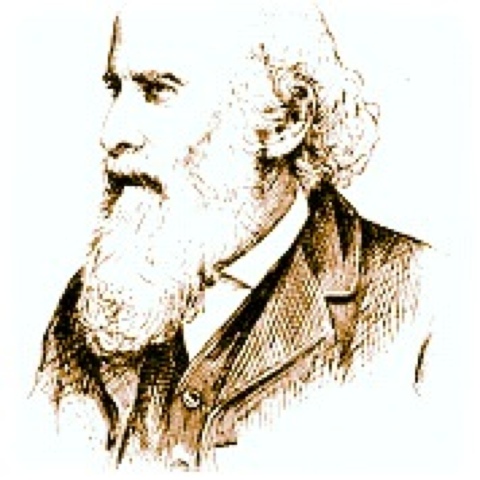Traps baited with orphan
Here is how Elizur Wright described whole-of-life insurance in 19th century’s America. He published his critical pamphlet in 1877 under the title ”Traps baited with orphan; or, What is the matter with life insurance” where he showed with actuarial arguments how the insurance companies were ripping off their policy-holders through exorbitant paid-up fees on whole-of-life business that basically annihilated the surrender value of the policies. Policy-holders trying to protect their families against adverse circumstances found themselves stuck if, for whatever reasons, they were unable to pay the premium. We are not talking here about risk business, as those policies had reserves calculated on the basis of whole-of-life, but those reserves were contractually stolen from the policy-holders.
“Traps baited with orphan” is a pamphlet that is both technical and emotional. It appeals to reason and also to the compassion of readers who would hate to see orphans lose their entitlement because not only did their father die, but he failed to pay his insurance premium the month before he died. Bad luck! Wright states: “Our system of providing for the orphan, if not broken down, has fallen into disrepute. People wonder what is the matter with it. They see shocking dishonesty, and begin to believe nobody can be trusted.” Wright goes on to say the system leads to the “propagation of rogues and enormous leeches.” These are really strong words in the mouth of a man who is about to explain the actuarial mechanism and the fault of insurance policies.
Later in his pamphlet, Wright describes actuaries as “a modest class of men, whose judgements and brains, so far as they have any, are used by the managers only so far as they see fit.” Well, I am very happy to know I am amongst a ‘modest class of men’... Who would have known?
However, Elizur was a writer clearly not falling into his own stereotype of actuaries and showing that a man of numbers can be a man of strong words. Wright wasn’t the actuary, as perhaps most common in the early days of life insurance, that would just give to his manager the number he wanted and then figure out a way to justify this number (How many actuaries does it take to change a light bulb? Answer: How many do you want it to be?). Wright debunked the fallacies that insurance companies were using to justify their excessive fees with the same passion he had debunked the arguments for slavery (read previous post, the Poet-Actuary)
It turns out Elizur Wright is also credited with having contributed to the obligation by insurance companies to hold sufficient reserves to cover their existing liabilities – though I haven’t yet found the earliest mention of this principle. It is interesting to see how the same man deplored on the one hand phony promises whereby insurance companies would issue policies way too advantageous to be secured by the future premiums, and on the other hand miserly benefits whereby insurance companies would bamboozle policyholders in the event of lapse. These are indeed the two capital sins of the product actuary, underpricing and overpricing, that Wright exposed on ethical grounds. I hope to write a third instalment on Elizur Wright and explore more of his legacy.
Tbc
“Traps baited with orphan” is a pamphlet that is both technical and emotional. It appeals to reason and also to the compassion of readers who would hate to see orphans lose their entitlement because not only did their father die, but he failed to pay his insurance premium the month before he died. Bad luck! Wright states: “Our system of providing for the orphan, if not broken down, has fallen into disrepute. People wonder what is the matter with it. They see shocking dishonesty, and begin to believe nobody can be trusted.” Wright goes on to say the system leads to the “propagation of rogues and enormous leeches.” These are really strong words in the mouth of a man who is about to explain the actuarial mechanism and the fault of insurance policies.
Later in his pamphlet, Wright describes actuaries as “a modest class of men, whose judgements and brains, so far as they have any, are used by the managers only so far as they see fit.” Well, I am very happy to know I am amongst a ‘modest class of men’... Who would have known?
However, Elizur was a writer clearly not falling into his own stereotype of actuaries and showing that a man of numbers can be a man of strong words. Wright wasn’t the actuary, as perhaps most common in the early days of life insurance, that would just give to his manager the number he wanted and then figure out a way to justify this number (How many actuaries does it take to change a light bulb? Answer: How many do you want it to be?). Wright debunked the fallacies that insurance companies were using to justify their excessive fees with the same passion he had debunked the arguments for slavery (read previous post, the Poet-Actuary)
It turns out Elizur Wright is also credited with having contributed to the obligation by insurance companies to hold sufficient reserves to cover their existing liabilities – though I haven’t yet found the earliest mention of this principle. It is interesting to see how the same man deplored on the one hand phony promises whereby insurance companies would issue policies way too advantageous to be secured by the future premiums, and on the other hand miserly benefits whereby insurance companies would bamboozle policyholders in the event of lapse. These are indeed the two capital sins of the product actuary, underpricing and overpricing, that Wright exposed on ethical grounds. I hope to write a third instalment on Elizur Wright and explore more of his legacy.
Tbc


Comments
Post a Comment